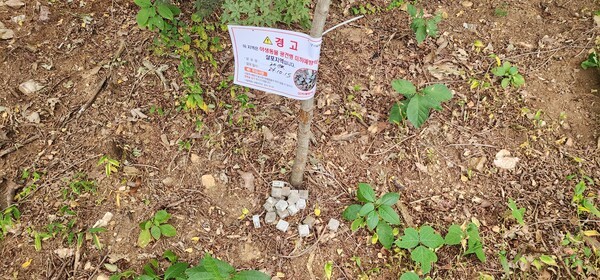From April 1 to May 15, the city of Seoul will disperse approximately 40,000 ‘rabies bait vaccines’ along Seoul Dulle-gil and major parks to prevent the transmission of rabies carried by wild animals such as raccoons.
The dispersed bait vaccines are structured to absorb the vaccine through the gums, allowing wild animals to ingest them naturally. The bait is made in a form of food, strategically placed at 1,520 points along 50-100 meter intervals, covering a total of 157 km in the form of a barrier.
Main areas for dispersal include the outskirts of Seoul where wild animals frequently appear, such as Bukhansan, Gwanaksan, Dobongsan, Suraksan, Yongmasan, Umeonsan, as well as streams like Anyangcheon, Uicheon, and Cheonggyecheon. Warning banners and signs will be set up in these areas to advise citizens not to touch the bait. The bait is a square shape about 2-3 cm in length, and caution is required as animals may be deterred from ingesting it if there is human scent.

Since 2006, the city of Seoul has annually dispersed rabies bait vaccines twice a year, in spring and autumn. To date, there have been no reported cases of rabies outbreaks caused by wild animals. The vaccines used have been verified for safety in over 50 species of animals, including dogs and cats, and are not harmful if ingested by pets. However, separate pet vaccinations at animal hospitals are necessary for rabies prevention.
When hiking with pets, wearing a leash and avoiding contact with wild animals is essential. If contact with a suspicious animal occurs, immediate reporting to quarantine authorities and a veterinary consultation is necessary. Rabies can be deadly if transmitted to humans, showing symptoms such as aggression, increased salivation, and excitement. In the event of a bite, wounds should be washed with soap for at least 15 minutes before seeking medical attention.
The city plans to retrieve any unconsumed bait about 30 days after its dispersal. Lee Soo-yeon, Director of Seoul’s Garden and Park Department, emphasized, “We consistently conduct annual vaccine distribution to prevent the entry of rabies into Seoul. We urge citizens to avoid contact with wild animals during their outdoor activities this spring.”